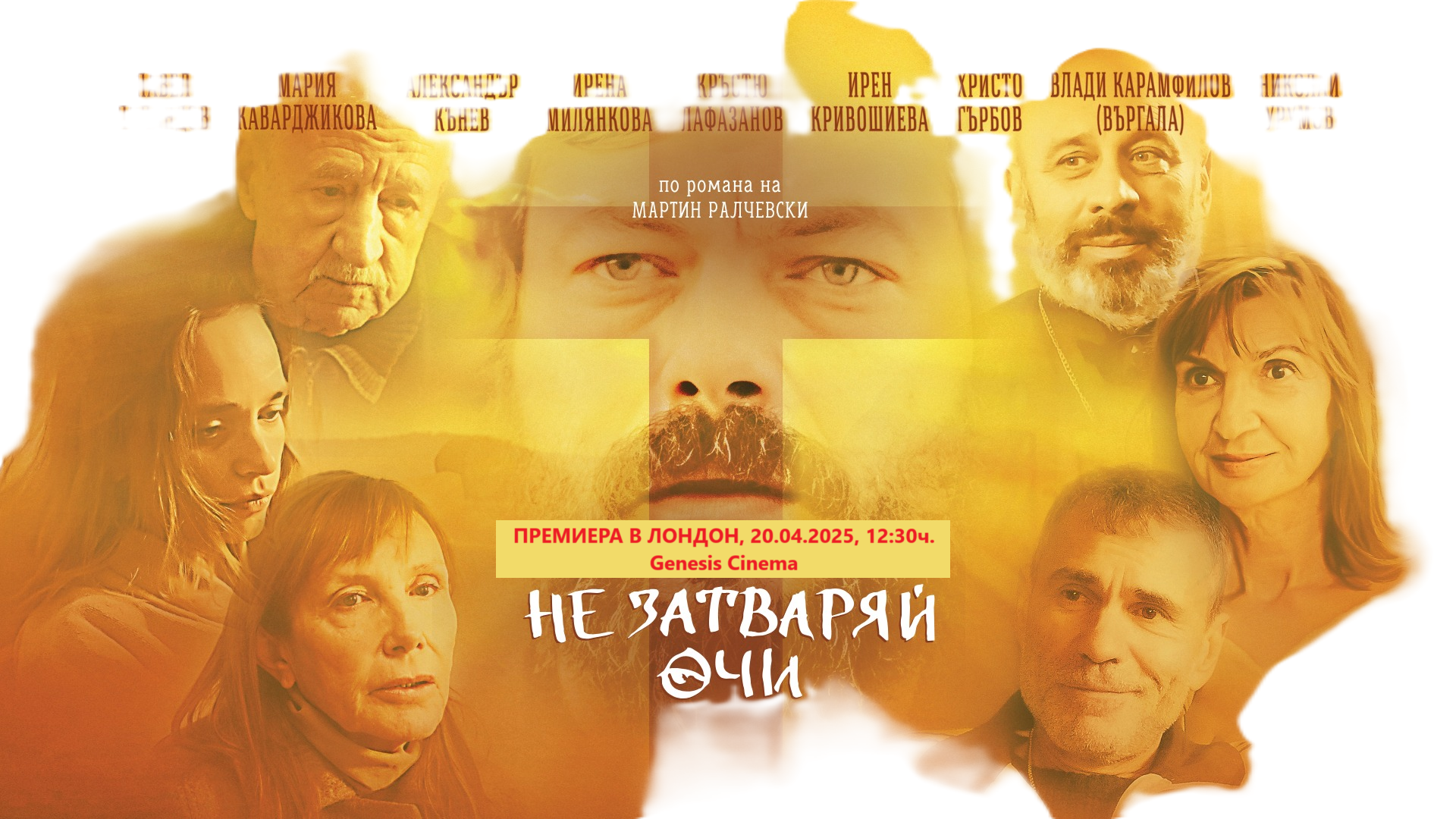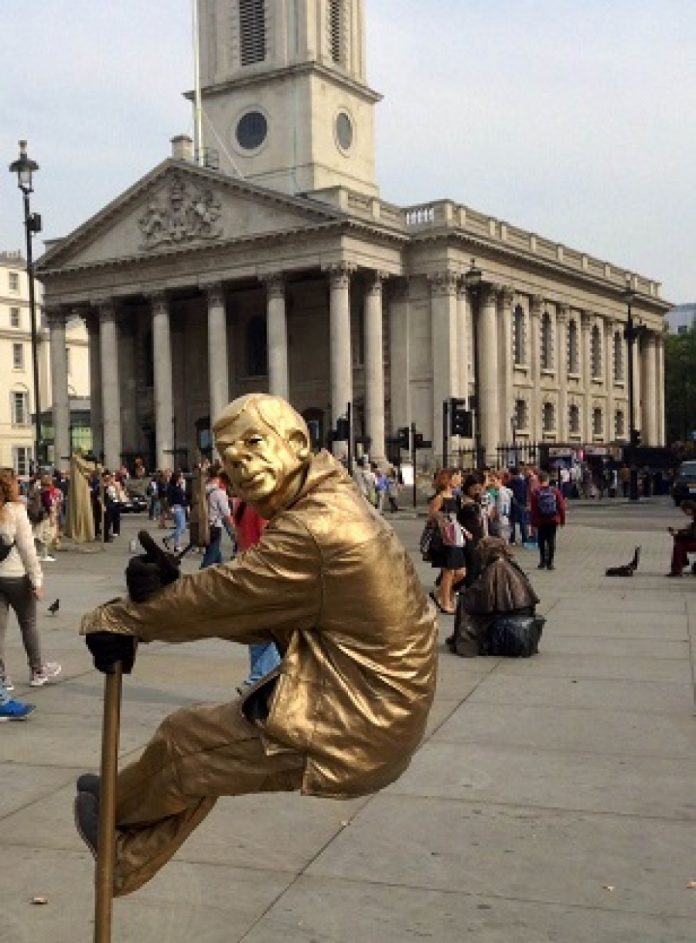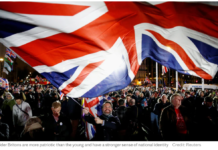By Rumyana Vakarelska
This week, UK politicians across the spectrum put EU immigration back high on the pre-election political agenda with the Lib Dems remaining the only pro-Europe and pro-EU migration party. This leaves many of us thinking that 25 years after the anti-communist revolutions 1989, we are walking on thin air. However, Jose Manuel Barroso, who served as President of the EC for ten years, has put some of these issues in perspective.
An artist at Trafalgar square (pictured) is walking on thin air using a magnetic field created by a small device beneath the surface underneath. However, the immediate political realities in the UK and in Bulgaria alike, should not distract from a strong focus on what the CEE countries’ citizens have achieved over the last 25 years, which speaks for itself. Nonetheless, those who made it happen, may not get proper recognition in the UK at this significant anniversary widely celebrated across the Continent.
In absence of a new government in Bulgaria three weeks after the October 5 elections and the prolonged instability for its voters at home and abroad and new threats to limit CEE EU immigration from both the British PM David Cameron and Ed Miliband, Labour’s opposition leader, the newly formed European Commission and European Parliament, which will start a new term in November, remain a key source for new informative directions for EU citizens living in the UK.
There is pressure from some Labour Party members for Ed Miliband to stop actively denying the achievements of Tony Blair’s EU enlargement policies and the progressive Cool Britannia era that transformed the UK, so a certain reversal in this party’s pre-election 2015 agenda is still possible, but the key allies to CEE EU countries in the UK remain the big business confederations and those who are aware of the economic, social, and political benefits to the UK of the EU.
Meanwhile, the Polish government said it will veto any restriction on EU free movement, so the Conservative government’s threats of this change is for now far from reality, as the principle of free movement of goods and people is embedded in the Roman Treaty and the EU’s Foundation Treaties cannot be changed easily at all.
However, saying this, one should not ignore the fact that efforts have been made by some UK administrative bodies to restrict the issuing of National Insurance documents to Bulgarians and Romanians and that individual approach rather than the common rule may effect those, who have applied for any kind of benefits in the UK.
The EC’s President Jose Manuel Barroso, who leaves office on November 1, paid a visit to the UK last week, saying that the ‘EU’s enlargement is the biggest achievement of Europe in modern times’.
‘All CEE countries want further integration as they do not want to be ‘second class’ citizens in Europe, so they are very active in governance reforms and support the EU’s fiscal union’, Barroso said.
‘No written proposals have been received so far from the UK on any arbitrary restrictions on EU immigration numbers, so solutions for benefits’ use should be found, but without restricting the movement of goods and people’, Barroso said.
‘Imagine we limit the freedom of movement in Gibraltar, when 700,000 UK citizens live in Spain, which become 1.4 million in the winter’, Barroso said.
According to Barroso, the UK would not be able to cap EU citizens immigration.
After all, the EC is created by governments and decisions on all these matters have already been taken by the EU governments, Barroso said, after being asked on why immigration matters should not be left to individual EU countries to decide upon.
Barrosso said, imagine the situation in Ukraine today without the CEE countries in EU, without EU integration we would have not one, but many ‘Ukrainian situations’. As we went to print, there is no decision on if the EU’s association agreement with Ukraine, due to become operational on November 1, will materialise or not, following the significant crisis in the relations between Russia and Ukraine and Russia and the Western world.
‘But be aware that the new EC has already taken a decision not to undertake further EU enlargement over its 5-year term and this is understandable, as the EU has been going through enlargement fatigue for a while’, Barroso said.
During my ten years at the helm of the EU as an EC President, I have lost some of my illusions, but have never lost my enthusiasm for the EU, Barroso said. His uniting figure at the EU’s top will be largely missed, but he certainly will continue playing a role in the EU that under his leadership grew by 13 countries since 2004.
Copyright Rumyana Vakarelska, Partner, Team New Europe
Picture caption: Walking on thin air, Trafalgar Square, London
Photo by Rumyana Vakarelska






















